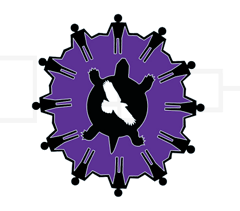Abstract
Major health disparities, high levels of poverty and food insecurity exist in many Native American and Alaskan Native (AI/AN) communities. Relatively little research has been done on these issues and possible relationships between them. A research program was designed with the objective of exploring the relationships between these various issues, if any existed, in one sub-group of AI/AN. In the study, the incidence of food insecurity was determined in a convenience sample of Northern Plains Indians (NPI) and correlated with measures of physical and mental health, body composition, quality of life, cultural identification and dietary intakes. Participants were 458 adult attendees at summer powwows and health fairs held at 5 reservations and 3 tribal colleges in North Dakota and western Minnesota. Participants completed various measurements and assessments and pertinent health and demographic data were recorded. Observed incidences of “food insecurity” overall and “very low food security” in particular (26.4% and 10.4%, respectively) were in sharp contrast to recently reported rates for North Dakota (8.7% and 3.4%) and the U.S. population as a whole (14.7% and 5.6%). In this manuscript, analysis revealed a positive relationship between food insecurity and depression and a negative relationship between food insecurity and quality of life. The findings emphasize the need to address food insecurity when designing research and service programs to address depression in AI/AN populations.
Recommended Citation
Gray, Jacqueline S.; Gonzaga, Kevin; Penland, James G.; Lukaski, Henry C.; and Stensland, Patty
(2015)
"Food Security, Depression and Quality of Life in Northern Plains Indians,"
Journal of Indigenous Research: Vol. 4:
Iss.
2015, Article 3.
DOI: https://doi.org/10.26077/f4xs-4v77
Available at:
https://digitalcommons.usu.edu/kicjir/vol4/iss2015/3

